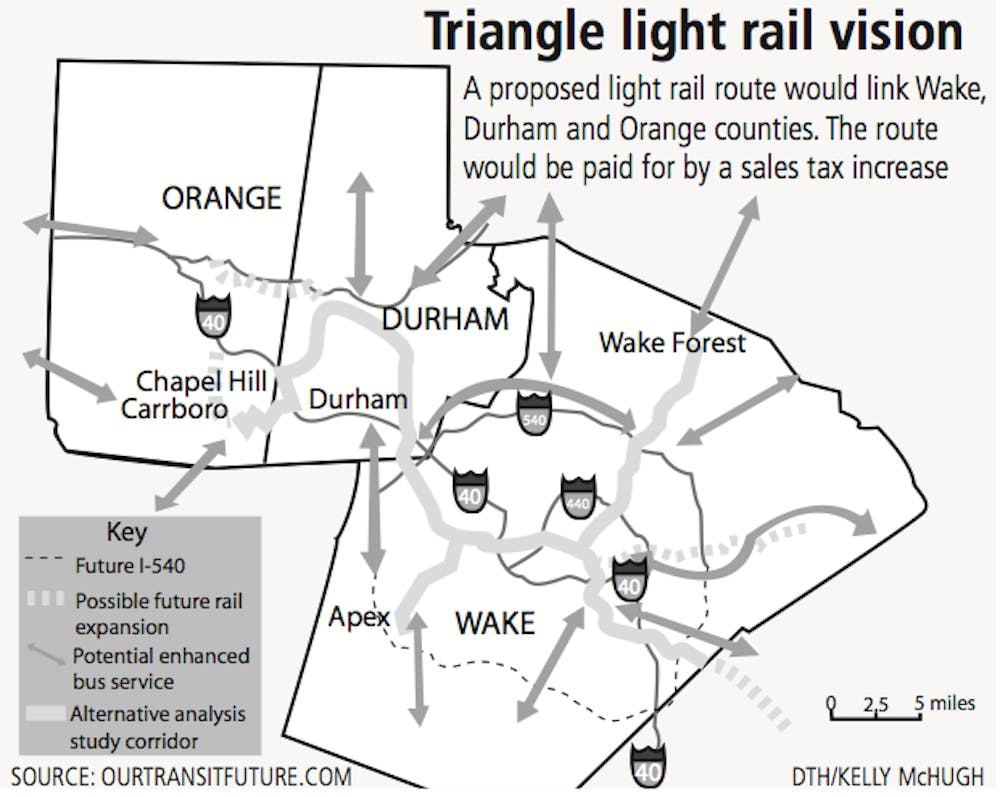Correction (July 8, 2010 3:45 p.m.): Due to reporting errors, an earlier version of this story incorrectly stated when Charlotte voters approved a half-cent sales tax in 2007 for construction of the LYNX Blue Line. The story has been changed to reflect this correction. The Daily Tar Heel apologizes for this error.
A tax increase that would bring light rail to the Triangle could also stop it in its tracks.
Citizens have until next year to vote to approve a half-cent sales tax increase to fund transit projects such as light rail, but opposition is already brewing against the measure.
“We will oppose anything that increases taxes of any kind,” said J. Russell Capps, president of the Wake County Taxpayers Association. “They tax everything already,” Capps said.
For 12 years, Capps served for Wake County in the N.C. House of Representatives. He said he’s never liked the idea of light rail in the Triangle.
“We have fought it and will continue to fight it,” he said. “Light rail is nothing in the world but trying to keep up with what other cities are doing.”
Overhead electrical lines power light rail cars, which can reach speeds up to 60 mph.
Light rail also averages $50 million to $60 million per mile in capital expenses.
The Triangle Transit Authority’s sweeping 25-year plan includes light rail, commuter rail, bus rapid transit and an expansion of existing bus service. In order to implement the plans, the TTA requires local, state and federal funding.



